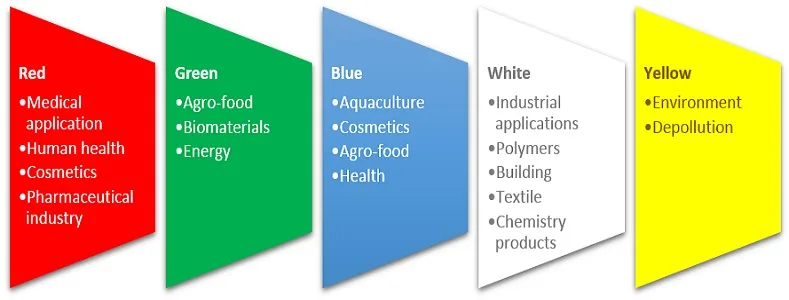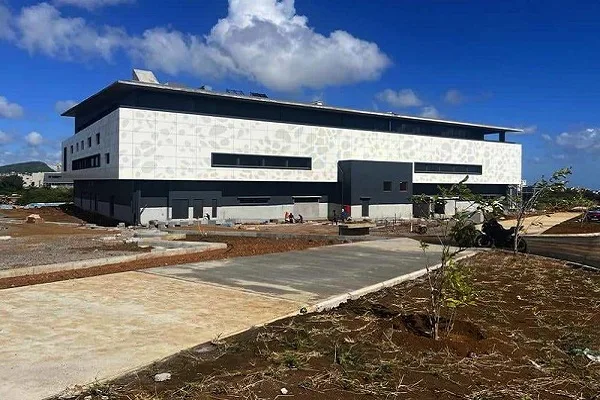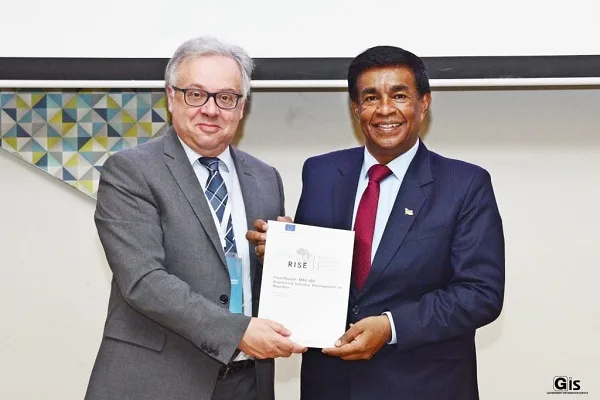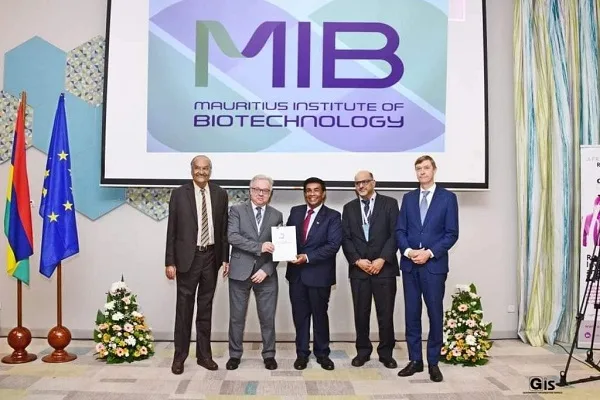Mauritius Ambitions to Shine on the Global Biopharma Map
During the COVID, several countries, including Mauritius, became acutely aware of the strategic importance of #HealthSecurity and #MedicalSovereignty as nations scramble for medical materials and vaccines. Mauritius, being a tiny market, experienced dire straits to procure emergency medical supplies at the height of the pandemic and the government took the bold decision to develop its own pharma industry in a bid to enhance #HealthSecurity.
As the #COVID pandemic is now behind, the scope of the project has been enlarged from the focus on vaccine to a larger spectrum ranging from red, green, blue, white, yellow to even grey biotechnologies.

In addition, the Government has come up with a package of incentives for investors in this critical sector. Actually, the Government is open to negotiate a tailor-made set of incentives, given the right investor profile.
Conscious of its modest market metrics, Mauritius thus aspires to serve the larger African continent. According to some estimates, Africa imported USD 31 billion of pharmaceuticals in 2020 and the figure is estimated to exceed USD 40 billion by 2030.
“We need a brand ambassador to promote the emerging sector and put Mauritius on the Global Biopharma Map.”
Africa RISE Economist Manisha Dookhony
Currently, 90% of its medicines consumed and 99% of vaccines administered in Africa are imported. The top three suppliers of pharmaceuticals to Africa are India (18%), China (12%) and France (8%). It is worth noting that China controls nearly 40% of the global Active Pharmaceutical Ingredients (API) market and supplies 80% of API to India and 45% to EU.
Africa accounts for 25% of the global demand for vaccines but currently produces only 0.1% of the total. Most of the production is way down on the value chain with simple fill-and-finish operation, similar to the Coca Cola model where the formula is kept secret and only the bottling is carried out locally.
Interestingly enough, Mauritius is already the 6th largest exporter of pharmaceuticals in Africa, behind leaders South Africa, Egypt and Kenya. In absolute terms, Mauritius biopharma exports were just shy of USD 50 million compared to nearly USD 800 million by the leader, South Africa, which takes almost half of the pie.
“The biopharma regulator should be financed in such a way that it is insulated from any private pressure.”
EC Deputy DG for International Partnerships Martin Seychell
Mauritius is part of the #AfCFTA and distinguishes itself as the first African country to have concluded an #FTA with both India and China. Mauritius counts some 400 firms in the Biotech sector whereas India or China each has more than 10,000 companies engaged in this industry.
Moreover, Mauritius has an #EEZ of more than 2 million square kilometers which puts it in the global Top 10 league. Thus, some experts believe that Blue Biotechnology might be an area where Mauritius might enjoy a comparative advantage. On this note, one of the top exports of Mauritius include Processed Fish and related derivates. As a success story, Marine Biotechnology Products (MBP) extracts certain molecules from sea creatures, which find applications in pharmacology and cosmetology.
To kickstart the industry, Mauritius has initiated talks with several big pharmas around the world. During the US-Africa Leaders Summit in December 2022, Mauritius had talks with US pharmas. Eventually, Pfizer partnered with South African pharma BioVac to manufacture mRNA vaccines. Later, Pfizer invested another USD 16 million to enhance the cold chain for vaccine with a state-of-the-art -70C Freezer Farm in Cape Town. In March 2023, Moderna announced its partnership with the Government Kenya to set up an mRNA manufacturing plant with an annual capacity of 500 million doses.
In addition, Mauritius also contemplated the possibility to attract certain Chinese pharmas. In the end, Sinopharm and Group 42 (G42) set up a JV to manufacture vaccine in Abu Dhabi, UAE, while Sinovac partnered with Egyptian state-owned enterprise Vacsera on a similar plant outside Cairo.

On a positive note, Mauritius managed to attract Indian multinational Ajanta Pharma and South African firm Cape Biologix to set up shop in Mauritius. Similarly, Mauritius is home to Natec Medical which manufactures medical devices for interventional cardiology. The French owner and chairman of the board, Vincent Lagarde, is confident enough about the future of the sector that he has invested nearly MUR one billion (EUR 20 million) to build a brand-new building to house his new AVA Group HQ as well as other biotech firms in the ‘Technopôle de Côte d’Or’, right across the M2 highway from Ébène Cybercity and the Réduit University Town.

One of the critical success factors identified is to bridge the skills gap. The President of the Republic of Mauritius Prithvirajsing Roopun suggested tapping into the Mauritian Diaspora around the world as a possible quick fix. To that effect, Mauritius is constituting a database of relevant talent in biotech and pharma.
As part of the efforts to elaborate a strategy, the EU financed a study on the “Industrial Development of the Biopharma Sector” in Mauritius. During a workshop to present the findings at Hennessy Hotel on 20 October 2022, Dev Manraj, the Financial Secretary of Mauritius and the initiator of the Mauritius Institute of Biotechnology, was gungho about the prospects of this new sector.
“The emergence of the biotech sector in Mauritius could prove to be a game changer and could well develop into a new pillar of the economy. We cannot continue with the same old gig, but rather need a shift in mindset to make it happen.”
Mauritian Financial Secretary Dev Manraj

